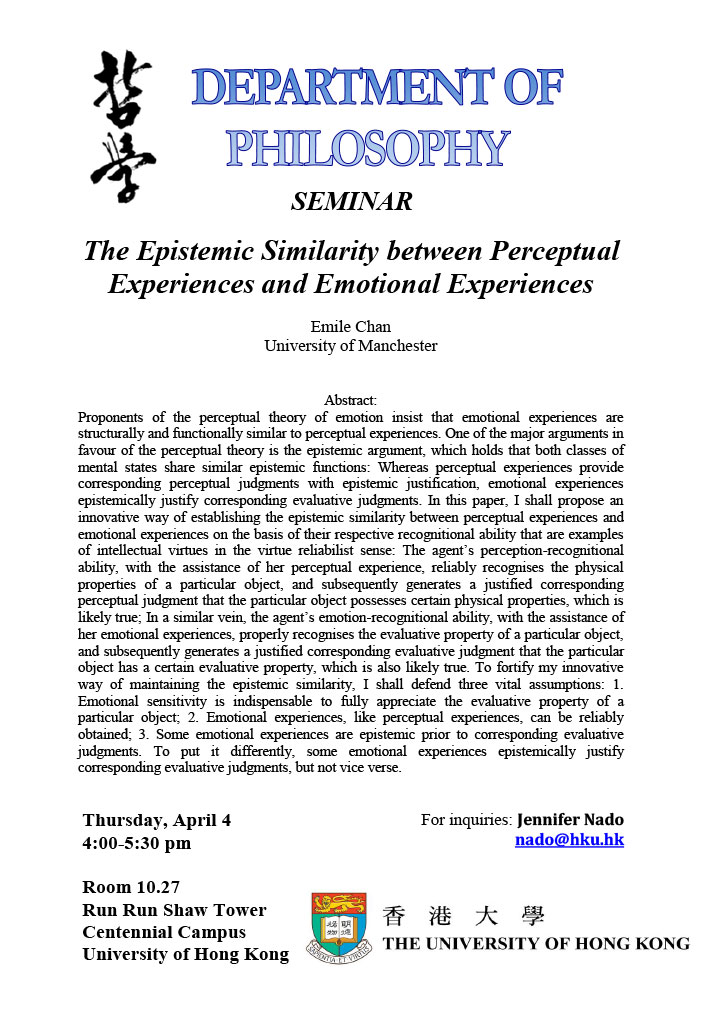
Department of Philosophy
The Epistemic Similarity between Perceptual Experiences and Emotional Experiences
Emile Chan
University of Manchester
Abstract:
Proponents of the perceptual theory of emotion insist that emotional experiences are structurally and functionally similar to perceptual experiences. One of the major arguments in favour of the perceptual theory is the epistemic argument, which holds that both classes of mental states share similar epistemic functions: Whereas perceptual experiences provide corresponding perceptual judgments with epistemic justification, emotional experiences epistemically justify corresponding evaluative judgments. In this paper, I shall propose an innovative way of establishing the epistemic similarity between perceptual experiences and emotional experiences on the basis of their respective recognitional ability that are examples of intellectual virtues in the virtue reliabilist sense: The agent’s perception-recognitional ability, with the assistance of her perceptual experience, reliably recognises the physical properties of a particular object, and subsequently generates a justified corresponding perceptual judgment that the particular object possesses certain physical properties, which is likely true; In a similar vein, the agent’s emotion-recognitional ability, with the assistance of her emotional experiences, properly recognises the evaluative property of a particular object, and subsequently generates a justified corresponding evaluative judgment that the particular object has a certain evaluative property, which is also likely true. To fortify my innovative way of maintaining the epistemic similarity, I shall defend three vital assumptions: 1. Emotional sensitivity is indispensable to fully appreciate the evaluative property of a particular object; 2. Emotional experiences, like perceptual experiences, can be reliably obtained; 3. Some emotional experiences are epistemic prior to corresponding evaluative judgments. To put it differently, some emotional experiences epistemically justify corresponding evaluative judgments, but not vice verse.
Thursday, April 4
4:00-5:30 pm
Room 10.27 Run Run Shaw Tower
Centennial Campus
University of Hong Kong
For inquiries: Jennifer Nado (nado@hku.hk)
